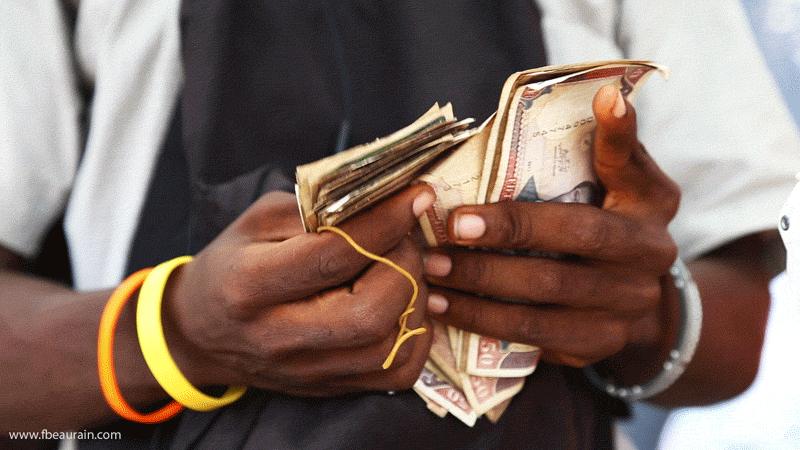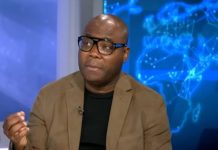Africa-Press – Liberia. Once again, money exchangers are giving LD154 for the USD1, even though less than 60 days ago, they gave LD170 for USD1. In August this year, using USD5, you could buy one gallon of gasoline at LD640 and get back LD210 in change. Today, you get LD60 in change because the exchange rate for USD5 has dropped from LD850 to LD700.
About one year ago, on 11 November 2020, Mr. Obediah Johnson, reporting for a local newspaper, stated that “…the abrupt sharp decline in the exchange rate between the Liberian and United States dollar is said to be worsening economic constraints and imposing additional hardship on the vast majority of Liberians, most of whom are impoverished.”
Mr. Sam P. Jackson, an MSc candidate at the London School of Economics and a strong supporter of the Ruling Coalition for Democratic Change (CDC) Administration, during an interview with the Liberia News Agency (LINA Panorama) on 18 October 2021, praised the CDC Administration for its “economic policies”.
Mr. Jackson claimed that the appreciation of the Liberian dollar would allow money exchangers to get more US dollars and that Liberian exporters will get more US dollars than they got yesterday for the same goods and services, adding, “it is true that a few business owners are capitalizing on the exchange rate to make huge profits; but that is what capitalists do”.
Now, let us reflect for a moment on how policymakers in a serious economy manage a policy instrument such as the exchange rate.
The following are taken into consideration:
Changes in government spending or taxation.
Changes in the money supply; and
An attempt to increase production in order to address economic issues such as the exchange rate, according to (www.Investopedia.com.)
In simple terms, what are the factors that increase the value of the Liberian dollar? They are:
Increase in the US currency by selling more exported goods,
Increase in the US currency by borrowing more US dollars,
Increase in the US currency by seeking donations from those who can give US dollars, etc.
Alternatively, the following can be done:
Government can reduce the printing of new banknotes,
Government can withhold some quantity of the Liberian dollars from the market, thereby reducing the Liberian dollars on the market.
Mr. Sam Jackson, the newly converted apologist of the Weah regime, took onto the airwaves recently, making some sweeping, frivolous remarks without discussing any substantive factors affecting the exchange rate.
While Mr. Jackson pontificated tautology on the economy that CDC fanatics celebrated, we in the LPP do take the Liberian people’s business much more seriously and did address the issues of one of the wrong fiscal policies (cut in spending) and the ill-advised monetary policy (high-interest rate) of President George Weah’s administration in two previous separate press releases. In our 24 August 2021 publication, LPP asserted that while it “accepts the theory and practice that government can cut spending, however, the huge cut of USD33M as reported within the 2021 National Budget will affect government operations and reduce cash in-take for businesses such as newspapers, office equipment/supplies stores, gasoline stations, restaurants, local farmers, etc.
Later, on 30 August 2021, the LPP called “…on Liberian Lawmakers and stakeholders to encourage President George Weah to end the practice of offering attractive interest rates (20%) to commercial banks. By virtually incentivizing commercial banks with such attractive gifts, the Government of Liberia unwittingly abetted commercial banks in seeking higher returns on their investment, which in effect triggered a reduction in the interest rate of 12% for lending money to businesses, since they could now earn more interest income by buying the government’s promissory notes offering a 20% interest rate.
Why did our country start the use of two currencies in the first place? The International Monetary Fund (IMF) tells us that said introduction of a dual-currency regime was necessitated by the imperative of addressing the problem of cash shortage in our economy and also to finance development projects aimed at boosting the economy and sustaining reserve cash for emergency, including the practice of keeping a reserve to be used in maintaining and supporting monetary policy.
The “…oil crises and global recession of the 1970s and 1980s had eroded cash surpluses; therefore, the government introduced the local currency alongside the U.S. dollar, according to the International Monetary Fund.
In short, add the Liberian dollar when a government is broke or when the local currency appreciates in value. Well, our Liberian government withheld Liberian currency (the missing LD16 Billion) away from the market, thereby, reducing the quantity.
Our economic advisers reduced spending when it cut the budget. Also, it reduced Liberian currency on the market when it offered a 20% interest rate for government promissory notes.
Interestingly, why did the government take away additional cash from the market in exchange for promissory notes offered to commercial banks when it reduced the money it usually pumps into the market by cutting spending?
Moreover, the LPP holds the view that money borrowed from the commercial banks would not have reduced the quantity of money on the market if the economic team had included proceeds from the sales of the promissory notes as cash in-take and increased government spending. (See page # XXIV of 2021 Budget).
Let us assume for the sake of argument that Mr. Jackson might not believe that the cut in spending and the reduction of cash from the banks did not reduce the value of the Liberian exchange rate; however, the economic records of Liberia do not show that Liberia received additional US currency, which is the other factor that would have had the effect of reducing the value of the Liberian dollar exchange rate.
Additionally, the records show that the Liberian dollar supply was valued at LD19 Billion as of 31 March 2021 (LD41 Billion minus LD22 Billion dollar outside of the banking system).
The Central Bank of Liberia 2020 Annual Report, issued on 31 March 2021, has information on the total “Broad Money” supply and the total Liberian dollar supply.
On pages 39 and 40, the CBL Annual Report shows that the “Total Broad Money” (M1 & M2) stood at LD127 Billion; of that amount, 85 billion was in United States Dollars and 41 billion in Liberian Dollars; of the LD41 Billion, it is reported that LD22 Billion is outside the banking system, thus leaving LD19 Billion within the banking system. So, how does the CDC Economic Management Team explain the scenario of the persistently frequent syndrome of no Liberian dollars or severely mutilated Liberian notes in the CBL and commercial banks?
So, the Central Bank of Liberia (CBL) records show that LD19 Billion was within the banking system, but irrefutable evidence suggests that the reason why there is no Liberian dollars or severely mutilated notes in the banks is because CDC big shots and their cohorts have stashed away huge volume of the missing 16 Billion Liberian Dollars in their various homes and the homes of their concubines, awaiting the slightest opportunity to launder (clean) said dirty, stolen Liberian dollars and try to legitimize same into authentic assets in banking institutions; hence, the shortage of Liberian dollars on the market, thereby spurring the current sharp decline in the standard of living for the average person, quite contrary to the “Pro-poor” claim of President Weah.
But we in LPP are sounding out an unequivocal warning to President Weah and his henchmen that we shall not countenance any criminal attempt to legitimize the thievery of the Liberian people’s 16 billion to sneak into their fat bank accounts. The LPP-led Administration, coming to power in 2024, shall hold any and all persons criminally culpable to account in keeping with the full force of the law.
Let us review this assertion by visiting the numbers within the National Budget and sales of promissory notes to commercial banks. The CDC budgetary experts foolhardily cut spending and did not re-allocate the savings to finance other programs?
Moreover, we challenge the CDC Administration to tell the Liberian people where they are keeping the cash from the proceeds on the sales of government promissory notes. So, LPP says it is outright baloney when Minister Samuel Tweh persistently peddles his pathological lies to the Liberian people that there is no missing 16 billion Liberian dollars.
Again, our analysis shows that the CDC budgetary experts did not include the cash received from domestic creditors within the National Budget as cash in-take.
In order to mitigate the adverse impact on the economy and the economic hardships on the people, induced by such nonsensical policies, the LPP recommends the following:
Restore the cut in spending.
End the sales of promissory notes at 20% to commercial banks.
Include within the National Budget proceeds of the sales of promissory notes.
For More News And Analysis About Liberia Follow Africa-Press






